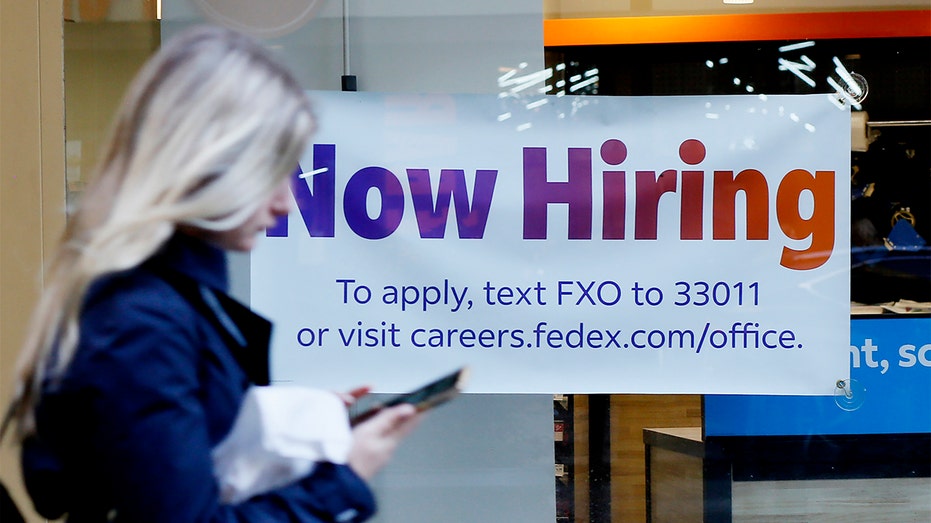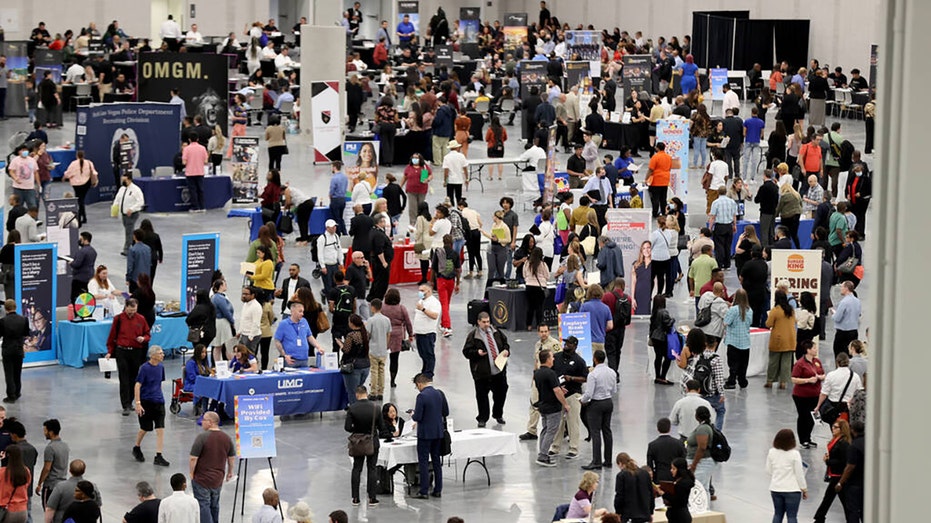December jobs report expected to show hiring cooled last month but remained strong
Economists expect US hiring to increase by 200,000 in December
November jobs report stronger than expected
The economy added 263,000 jobs in November. FOX Business' Cheryl Casone with more.
U.S. job growth in December likely cooled moderately from earlier in the year, but hiring probably remained solid despite growing headwinds from higher interest rates and stubbornly high inflation.
The Labor Department on Friday morning is releasing its closely watched December payroll report, which is projected to show that hiring increased by 200,000 last month and that the unemployment rate held steady at 3.7%, according to a median estimate by Refinitiv economists.
That would mark a drop from the 263,000 recorded in November and would be the weakest monthly job growth since December 2020.
While monthly jobs data is always important, the Federal Reserve has been closely watching the reports for signs that the labor market is starting to slow down from its torrid pace as policymakers try to wrestle inflation under control. Although consumer prices have cooled slightly from a peak of 9.1% in June, they still remain about three times above the pre-pandemic average.
THE FED'S WAR ON INFLATION COULD COST 1M JOBS
A hotter-than-expected figure on Friday could be a worrisome sign for the U.S. central bank, which has already approved seven straight interest rate hikes and signaled that it intends to keep rates elevated for "some time."
The labor market has remained historically tight for most of the year. A separate report released Wednesday showed there were about 10.46 million job openings in November, down just slightly from the 10.51 million reported the previous month. That amounts to about 1.7 jobs per available worker.
The number of available jobs has now topped 10 million for 13 consecutive months; before the pandemic began in February 2020, the highest on record was 7.7 million.
STILL MISSING YOUR TAX REFUND? THE IRS WILL SOON PAY YOU 7% INTEREST

A "now hiring" sign is displayed on a shopfront on Oct. 21, 2022, in New York City. (Leonardo Munoz/VIEWpress / Getty Images)
But there are growing signs that the labor market is starting to weaken. A number of major companies have announced job cuts in the last year, led by the technology sector, including Amazon, Meta and Twitter.
"The labor market was still tight at the end of 2022, but the quality of jobs available to American workers has declined," said Bill Adams, chief economist for Comerica Bank. "Tech, finance and manufacturing employers are laying off workers while hiring continues in lower-paying industries like leisure and hospitality."
For many economists, the possibility of unemployment rising has become a question of when, not if. At its last meeting, the Fed projected that the jobless rate will march substantially higher to 4.6% and remained elevated in 2024 and 2025 as steeper rates continue to take their toll by pushing up borrowing costs.
In plain English, that amounts to job losses of roughly 1.7 million.

Job seekers visit booths during the Spring Job Fair at the Las Vegas Convention Center, April 15, 2022. (K.M. Cannon/Las Vegas Review-Journal / Getty Images)
Hiking interest rates tends to create higher rates on consumer and business loans, which slows the economy by forcing employers to cut back on spending.
NOVEMBER INFLATION BREAKDOWN: WHERE ARE PRICES RISING THE FASTEST?
"The Federal Reserve set the predicate for an eventual pause in its efforts to restore price stability in early 2023 even as it indicated it intends to continue lifting rates into an economic slowdown that looks awfully close to the Fed forecasting a recession next year," said Joe Brusuelas, chief economist at RSM. He noted that the economic forecasts "come as close to the Fed forecasting a recession as one is ever likely to see."
While Fed Chairman Jerome Powell has maintained that a soft, or "softish," landing" is a plausible outcome from the Fed's inflation-fighting campaign, he has acknowledged that unemployment is likely to climb and cause some pain for households.
"There will be some softening in labor market conditions," Powell told reporters in December. "And I wish there were a completely painless way to restore price stability. There isn’t."





















